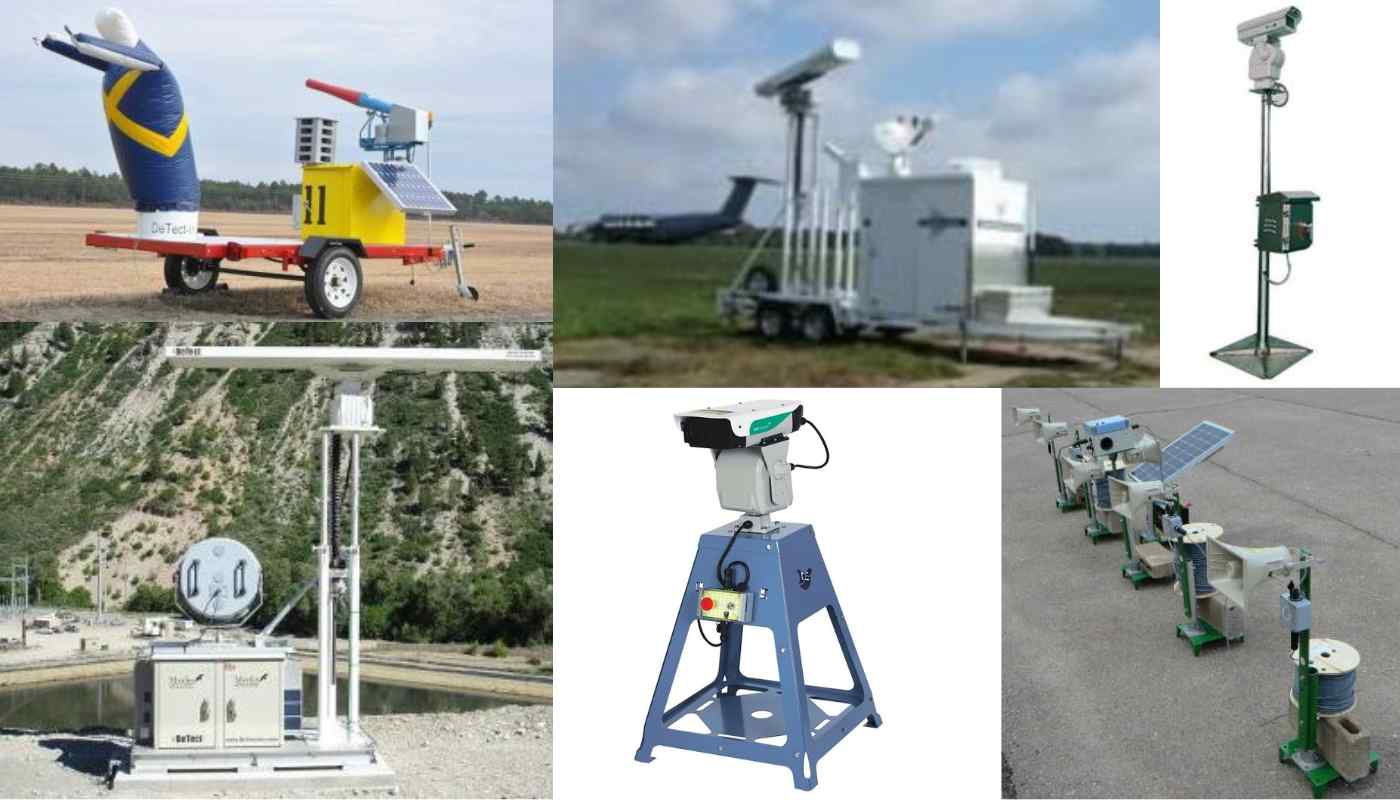Bird Control Systems and Acoustic Bird Scarer in Japan in 2024
The Land of the Rising Sun, Japan, is renowned for its breathtaking landscapes, rich cultural heritage, and technological prowess. But beneath the bustling cities and serene countryside lies a hidden challenge: birds. While these feathered friends add a touch of beauty to the environment, their presence near airports can pose a serious threat to aircraft safety. This is where bird control systems and, specifically, acoustic bird scarers come into play.

Bird Strikes and Their Impact
Bird strikes, collisions between birds and aircraft, are a significant concern in the aviation industry. These incidents can cause severe damage to airplanes, disrupt flights, and even endanger human lives. The consequences can range from minor dents and engine malfunctions to complete aircraft failure. The cost is not just financial, but also poses a risk to passenger safety.
In Japan, just like many other countries, bird strikes are a recurring issue. Here are some reasons why:
- Geography: Japan is an archipelago nation with numerous islands, creating ideal nesting grounds and migratory routes for various bird species.
- Urbanization: The expansion of urban areas often encroaches on natural habitats, forcing birds closer to airports in search of food and shelter.
- Increased air traffic: With Japan’s growing economy and booming tourism industry, air traffic has steadily risen, increasing the likelihood of encounters between birds and airplanes.
A Multi-Faceted Approach to Bird Control
To combat the threat of bird strikes, Japanese airports implement a multi-faceted approach to bird control. This includes:
- Habitat modification: This involves managing vegetation around airports to make them less attractive to birds. This can involve removing tall trees and shrubs that birds use for perching and nesting.
- Water cannons and scarecrows: These traditional methods can be effective in scaring away birds, especially smaller species.
- Avian radar: This technology helps airport wildlife management teams track bird movements and predict potential flock activity near runways.
- Laser bird deterrents: These devices emit harmless laser beams that can disorient and scare away birds.
A Humane and Effective Solution
Among these methods, acoustic bird scarers have emerged as a popular and effective solution in Japan. These devices emit distress calls of predatory birds or other sounds that are unpleasant to pest birds. The sounds are carefully chosen to target specific bird species without causing disturbance to humans or other wildlife.
There are several advantages to using acoustic bird scarers:
- Humane: Unlike some traditional methods, acoustic bird scarers are a humane way to deter birds. They do not harm the birds, but simply encourage them to move to a different location.
- Effectiveness: Studies have shown that acoustic bird scarers can be highly effective in reducing bird activity near airports.
- Ease of use: These devices are relatively easy to install and operate, making them a cost-effective solution for airports.
- Customizability: Modern acoustic bird scarers can be programmed with a variety of sounds to target specific bird species.
Japanese Bird Control Manufacturers
Japan is a leader in innovative technological solutions, and this extends to the realm of bird control. Several Japanese manufacturers are at the forefront of developing advanced acoustic bird scarers. These companies are constantly researching and developing new technologies to improve the effectiveness and user-friendliness of their products.
Here are some of the key features being explored by Japanese bird control manufacturers:
- Solar-powered scarers: These eco-friendly devices eliminate the need for external power sources, making them ideal for remote locations.
- Automated scheduling: Scarers can be programmed to operate at specific times of day or during periods of high bird activity.
- Species-specific sounds: By incorporating a wider range of sounds, scarers can target a broader spectrum of pest birds.
- Integration with radar systems: Combining acoustic scarers with avian radar data can create a more targeted and efficient bird control system.
Wider Applications of Bird Control Systems
While the primary focus of this article is on bird control at airports, acoustic bird scarers and other control systems have numerous applications beyond aviation. Here are some examples:
- Agriculture: Farmers can use bird control systems to protect their crops from bird damage.
- Food processing facilities: These facilities can benefit from bird control to maintain hygiene and prevent contamination.
- Urban areas: Bird control systems can be used to deter birds from nesting in buildings or public spaces where their presence can be a nuisance.
FAQs
What are the most common bird control methods used at Japanese airports?
Japanese airports utilize a multi-pronged approach. This includes habitat modification, traditional methods like water cannons and scarecrows, alongside modern tech like avian radar and laser deterrents. Acoustic bird scarers, emitting distress calls, are gaining popularity due to their humane and effective nature.
Why are acoustic bird scarers becoming a preferred method in Japan?
Acoustic scarers offer several advantages. They are humane, causing no harm to birds, and highly effective in reducing bird activity. They’re easy to use, cost-effective, and can be customized to target specific bird species with various distress calls.
What are some innovations in Japanese bird control technology?
Japanese manufacturers are at the forefront of bird control innovation. They’re developing solar-powered scarers for eco-friendly operation, automated scheduling for targeted use, and integration with radar for even more effective bird deterrence.





